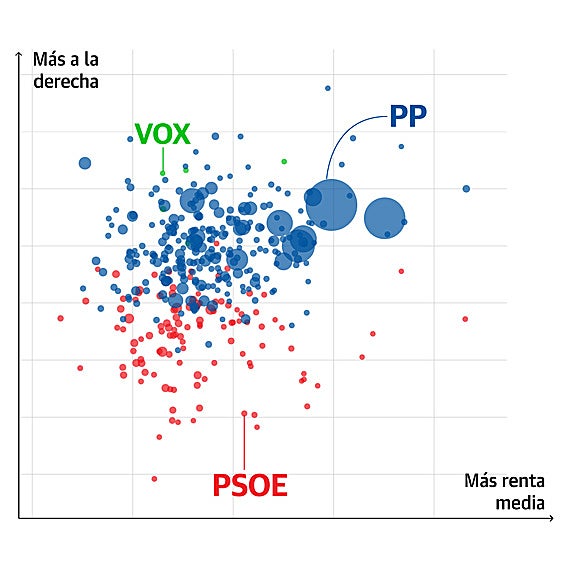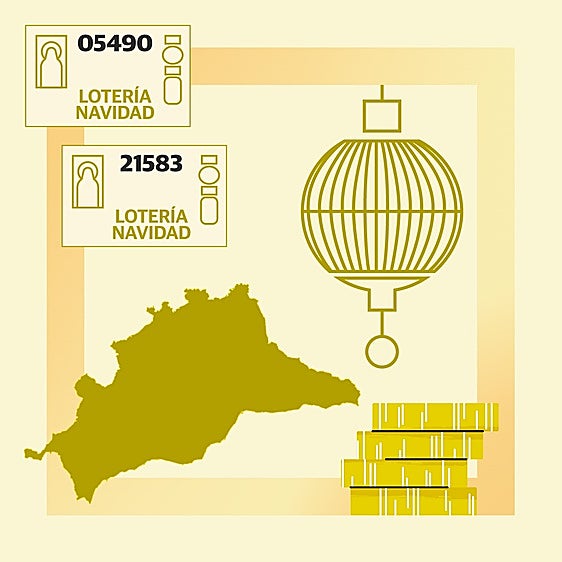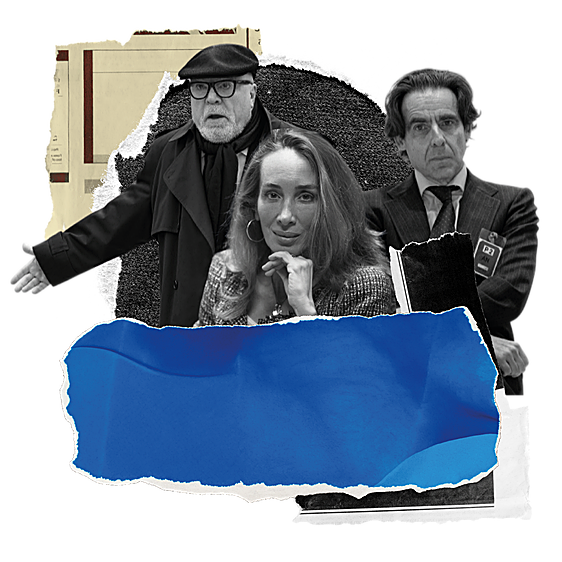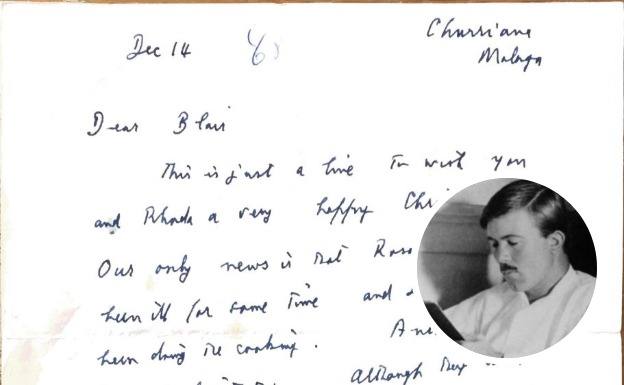"Dear Blair, Gamel died this morning": Gerald Brenan's letters to his brother have come back to Malaga
The author's great-nephew has donated some of the letters he wrote to his family from his home in Churriana which show the more intimate and private side of a very public figure
REGINA SOTORRÍO
Friday, 1 April 2022, 11:56
Dear Blair, Gamel died this morning at 10:40 am". It was 18 January 1968. Gerald Brenan was writing to his brother from Churriana to tell him the bad news and to relieve the tension of eight long, agonising days. At that moment it wasn't the successful author of 'The Spanish Labyrinth' and 'South of Granada' writing, but an exhausted man, devastated by the loss of his companion of more than 30 years.
That letter, together with many others, have now returned to the place from which they came half a century ago, along with personal photos donated by Blair Brenan's family. It is an intimate legacy that shows the private side of the Hispanist, and it has just been given to the mayor of Malaga, Francisco de la Torre, to be kept at the Casa Gerald Brenan.
"I remember that my mother and my grandparents, Blair and Rhoda, felt shocked by his news," says William Piper, the author's great-nephew, who is behind the donation.
In every letter to his family, Brenan recounted an important event in his life without stinting on detail. He always asked how his relatives were, but he was the main protagonist in his correspondence. He talked about how he was, how he felt, what he was writing at the time, who he had spent time with, and that is why these 20 letters are an interesting, first-hand account of his time in Churriana.
They came to light after the deaths of Lydia Brenan and Roger Piper, the parents of Blair's grandson, William Piper. "I found them while sorting through family papers, and I wanted to preserve them," he said. He made contact with the Aldbourne Heritage Group, in the village where Brenan lived after the Civil War, and one of its members put him in touch with Lola Ortega Muñoz, a philologist in Malaga who is a specialist in this British author, and she helped to arrange the donation. William admitted that he doesn't really know what his great-uncle would think about these letters being made public, but said he acted in "a spirit of openness and truthfulness, a spirit which he would approve of."
Lola Ortega said they have "an extraordinary value" for researchers. "He speaks of people, places and events that appear in his works, and which are especially mentioned in his autobiography and in Jonathan Gathorne-Hardy's biography," she said. Although it is certain that he had not intended them to be published, Brenan was already a recognised Hispanist and aware that anything that bore his signature had a certain importance. In fact, he sold letters he had exchanged with Dora Carrington to the University of Austin.
Also, some passages in his autobiography in English are very similar to the letters he sent to his brother. "That is to say, he used correspondence as a sort of draft for his works, to see what sort of reaction it provoked in people," Ortega said. Later, he would refine his texts, make them more politically correct, but the essence was in these letters. "Here, we can see the more authentic Brenan," she explained. That is the case with the letter he sent the same day Gamel Woolsey died from cancer, in which he described his wife's terrible agony, looked after by the domestic staff, their friend Honor Tracy and Brenan himself during eight very difficult days. He explained that the local doctor had refused to prescribe morphine because Gamel's heart was weak, and that prolonged her suffering.
For William Piper, the letters reveal the contrasts in Gerald's character. "On the one hand, he has a close connection with the members of his family," something he inherited from his "loving mother, and was quite the opposite to his strict father", said Ortega. And, on the other hand, it shows his "need to mostly write about his own life". She was surprised by his ability to transmit "deep emotions, like the pain he felt after the death of his wife Gamel," and then demonstrate in the next letter "his lack of sensitivity" when he talked about Lynda only a few months after losing her.
Lynda, who became his PA, his friend during the final stage of his life and the custodian of his legacy, appeared for the first time in a missive of 12 May 1968, in which he told his brother that a girl called Lynda Price had moved in with him in early March. She was 24 and had studied at Chelsea Art School, although in the end she opted for literature, especially poetry. The letter was full of praise for Lynda. Her arrival on the scene was "a new inspiration to continue with his literary career as a writer," said Ortega. At that time Brenan was working on the second part of his autobiography, 'Personal Record', and when he finished he went back to writing poetry, "something which he had always enjoyed."
The women
"Brenan's success was thanks to the women around him, first Gamel and then Lynda," Ortega said. They typed and corrected his writings and imposed a certain discipline on his work. "For him, the most important thing was his career as a writer. And Lynda represented the possibility of continuing it," she explained.
In another letter dated 28 October 1968, Gerald asked Blair to thank his wife Rhoda for mediating between Lynda and Miranda. His daughter (from his relationship with Juliana, his maid in his time in the Alpujarras) was jealous and had been demanding the money inherited from her mother.
At the end of that year, on 14 December 1968, Brenan announced another important change in his life in a letter to his brother. He had decided to sell the house in Churriana because it was too big for him, and he needed the money in order to go on writing. Before that he would have to talk to his daughter Miranda, because he had promised that she would inherit it. Just over a year after sending that letter, he moved to La Cañada de las Palomas in Alhaurín el Grande, where he lived until his death in 1987. The house had been bought in the name of Lynda Nicholson-Price.
These letters and photos from the family album are only the beginning of a relationship with Malaga that William Piper wants to continue. His family has some letters written by Brenan in Alhaurín, his diary and his mother's diary: dozens of memories and direct testimonies of a writer that are now taking on a new meaning.



